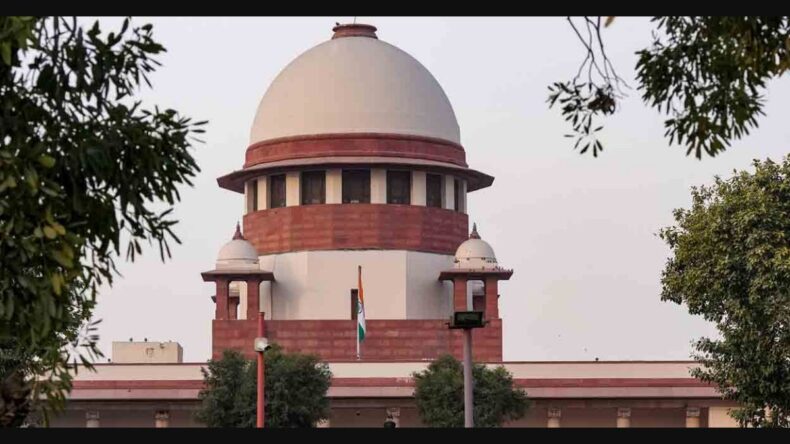Author: KhushiSoi
In a significant ruling that underscores the vital intersection of healthcare accessibility and affordability, the Supreme Court of India has once again emphasized the pivotal role of generic drugs in promoting equitable healthcare for all citizens. The apex court’s Public Interest Litigation (PIL) decision sends a clear message to pharmaceutical companies and consumers about the imperative need to balance brand-name medicines and more cost-effective generic alternatives. Supreme Court Reiterates Importance of Affordable Healthcare, Encourages Usage of Generic Drugs The PIL, filed by transparency activist and environmentalist Kishan Chand Jain, sought to address the pressing concern of exorbitant prices associated with…
In a significant development, the Bombay High Court has exposed and condemned an international human trafficking network that exploited young girls from Bangladesh and forced them into prostitution using forged Aadhaar cards and bringing them to India. The court’s decision is a stern reminder of the pressing need to address the rampant issue of human trafficking in the region. Bombay High Court Takes Strong Action Against International Human Trafficking Network Exploiting Girls from Bangladesh Unravelling a Disturbing Web of Exploitation The court’s recent verdict shed light on a disturbing network that lured vulnerable girls from Bangladesh into India and then…
The Supreme Court of India is poised to reexamine the bail granted to Rashtriya Janata Dal (RJD) Chief Lalu Prasad Yadav in connection to cases linked to the infamous fodder scam. The hearing is scheduled for August 25th, as announced by the apex court. The development is a significant legal twist in the prolonged legal battle surrounding the high-profile corruption case. Supreme Court Sets Date to Reconsider Bail Granted to RJD Chief Lalu Prasad in Fodder Scam Cases The fodder scam, one of India’s most notorious corruption cases, revolves around the embezzlement of funds from the Animal Husbandry Department of…
The Supreme Court of India has taken a significant step by referring a crucial question regarding the limitation period for applications under Order XXI, Rule 95 of the Code of Civil Procedure (CPC), to a larger bench. The move comes as doubts have emerged about the precedent set by a previous ruling concerning the initiation of the limitation period. This decision could have far-reaching implications for litigants and legal practitioners who deal with execution proceedings. Supreme Court Refers the Question of Limitation for Application under Order XXI, Rule 95 CPC to Larger Bench The case in question revolves around the…
The Supreme Court of India has recently dismissed a Public Interest Litigation (PIL) that sought the establishment of an Internal Security Council tasked with supervising national and state-level investigating agencies. While acknowledging the importance of ensuring accountability and transparency in law enforcement, the court held that the nature of the relief sought was a policy, and the same is not the domain of the judiciary but the legislature. Thus, the writ jurisdiction of the court could not be exercised. Supreme Court Dismisses PIL Seeking Establishment of Internal Security Council for Oversight of Investigating Agencies In a significant ruling, a bench…
In a significant verdict, the Supreme Court of India has reaffirmed the importance of media self-regulation while reinforcing the role of the News Broadcasting Standards and Disputes Authority (NBDSA) in imposing penalties on television channels. The apex court’s ruling comes as a response to a petition questioning the High Court’s critical observations against the self-regulatory mechanism in the media industry. The High Court’s judgement came in a January 2021 case questioning the media trial of the Sushant Singh Rajput death case. This judgment holds far-reaching implications for media ethics, accountability, and press freedom. Supreme Court Upholds Media Self-Regulation Mechanism: NBDSA’s…
In a recent landmark decision, the Supreme Court of India has provided crucial clarity on applying Section 82 of the Code of Criminal Procedure (CrPC) concerning the proclamation of absconding accused and the summoning of prosecution witnesses. The ruling comes as a significant development in criminal justice proceedings and is expected to impact how courts deal with absconding individuals and prosecution witnesses. Supreme Court Rules on Prosecution Witnesses and Proclamation under Section 82 of CrPC Section 82 of the CrPC pertains to the issuance of a proclamation by the court, notifying an individual to appear before it concerning a criminal…
Unacademy, India’s leading online education platform, has announced a strategic move to strengthen its offline education offerings. The company has appointed Anurag Tiwari, a seasoned veteran from Aakash Educational Services Limited, to head its offline classes division. This strategic move showcases Unacademy’s commitment to providing a holistic learning experience to its students by bridging the gap between online and offline learning methodologies. Unacademy Appoints Anurag Tiwari to Lead Offline Classes Division Unacademy has been a pioneer in revolutionizing the online education landscape in India. With a wide array of courses and expert educators on its platform, it has empowered millions…
The Supreme Court Advocates on Record Association (SCAORA) has recently voiced concerns regarding the procedure for mentioning urgent matters before Chief Justice DY Chandrachud. This development has garnered attention within legal circles and raised discussions on the efficiency and transparency of the urgent matter mentioning process. Supreme Court Advocates on Record Association Raises Concerns Over Urgent Matter Mentioning Procedure The process of mentioning urgent matters is a crucial aspect of the Indian judicial system, allowing lawyers to bring time-sensitive cases to the immediate attention of the bench. Over time, this practice has evolved to accommodate the increasing caseload and ensure…
Recently, the Supreme Court of India has raised significant concerns regarding the integrity of test identification parades when accused individuals are exposed to witnesses before the formal identification process. The apex court’s observation emphasizes the need to uphold the sanctity of these parades, which play a pivotal role in ensuring a fair and just judicial process. Doubts Arise Over Test Identification Parade Sanctity as Supreme Court Questions Witness Exposure in Police Stations The Supreme Court has cast doubts on the authenticity of test identification parades conducted by law enforcement agencies. This doubt stems from instances where accused individuals have been…
Contact us:
Copyright © 2024 Asiana Times. All Rights Reserved





